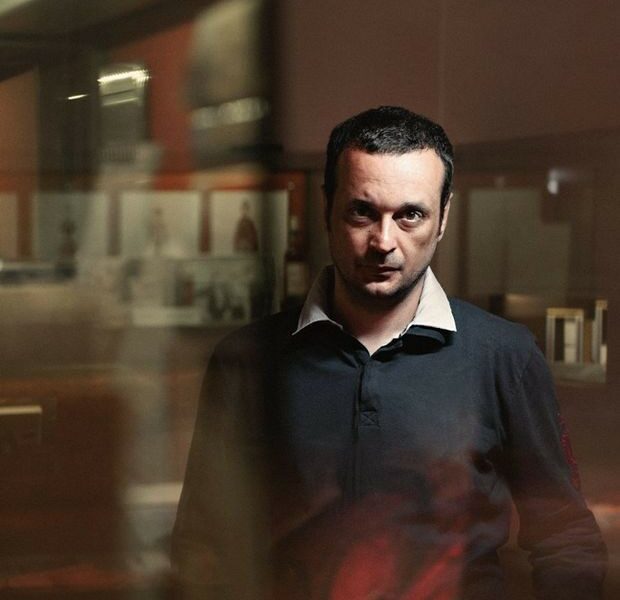

Today we’d like to introduce you to Giannis Farsaris.
Hi Giannis, can you start by introducing yourself? We’d love to learn more about how you got to where you are today?
I was born in 1973 in Greece, on the beautiful island of Crete. I studied Computer Science at the University of Crete, Adult Education at the Hellenic Open University, and theatre writing at the Poreia Workshop.
I live in Heraklion, Crete and I work as a teacher of Informatics in a high school. I am an author of short stories books and plays, but at the same time I am actively involved with digital commons and open culture, having created Open Library, the largest digital library in the Greek language (www.openbook.gr).
Many years ago, I worked as a copywriter for an advertising company and that was the cause I started writing my first novel. It took me many years to complete and was finally released in 2008 on the internet – one of the first Greek free e-books at the time. The success of this book was the inspiration to start building the Open Library website.
Then, I started writing flash-fiction stories and in 2015 a book of short stories was released, through an experimental model of collective publication through crowd-funding. I am fascinated by the stories of a few words, the subtraction, and the narration that winks at the reader to activate his imagination.
Lately, I have completed the writing of theatrical plays, and I look forward to going on stage. At the same time, I have prepared a new book on open creativity in art, which I hope will be published soon. And this is a creative journey that will never end.
I started the Open Library project in 2010, gathering on one website the few Greek books that were then freely available on the internet. Then, with the help of friends, we voluntarily created a repository of 11,700+ Greek digital books and 1,700+ audio books that are legally distributed freely.
The project has gained publicity and won many awards, but the most important thing is that more and more readers use it to discover free books and we are constantly contacted by young authors who want to release their work digitally.
I’m sure you wouldn’t say it’s been obstacle-free, but so far would you say the journey has been a fairly smooth road?
As for the Open Library, we initially had negative and derogatory reactions from people who were used to the paper book and refused to accept the transition to the digital book.
But what really matters is not the book, it’s the text. The book is just the packaging of the text. Before the paper book, there were carved stones, parchments, and papyrus scrolls. Johannes Gutenberg changed the history of the world by making knowledge accessible to all through printed books.
In the digital era, we have gone one step further: “One thing about eBooks that most people haven’t thought much is that eBooks are the very first thing that we’re all able to have as much as we want other than air”, once said the inspirational Michael S. Hart, the inventor of the first e-book in 1971.
The text will never die, as people after the advent of the internet now read and write much more. I am very optimistic about the future of digital literature, as new forms will be born that we are not even able to imagine now.
A big issue is the low percentage of book readers over time. Digital books are not the enemy of paper books, but on the contrary, they are both allies in the effort to increase literacy. We need to see this as an opportunity for younger people -who are not proven to read books- to start reading on their electronic devices.
Can you tell our readers more about what you do and what you think sets you apart from others?
In the world of Information Technology, where I come from, there is a deep-rooted open culture that stems from the ethical rules of hackers as early as the 1960s. The philosophy of open-source software started with GNU/ Linux, which has given us unlimited free applications such as Android on mobile, Mozilla Firefox browser, Wikipedia encyclopedia, LibreOffice, RepRap 3D printer, etc.
Since I am also a writer, I wanted to transfer all this open culture to the world of literature by creating the Greek Open Library (www.openbook.gr): A digital library, a repository that includes thousands of Greek books that are freely and legally available on the internet.
These are either Public domain books, (i.e. classic books that have expired their copyright due to the 70th anniversary of their writer’s death, or contemporary books that their authors have chosen to make available freely on the internet through Creative Commons licenses). It is an effort that is constantly evolving with the voluntary contribution of friends, in order to promote an open culture and free access to knowledge and culture.
I never doubted this project. The roots of my faith were deep from the beginning and my dream of a shared Greek digital library was becoming more and more alive every day.
And it does not stop there, as my desire is to create a strong voluntary community with a great goal: The digitization and release on the internet of all books of classical Ancient Greek literature, to create an intangible ark of Greek culture.
What are your plans for the future?
Twelve years later, I feel we are still at the very beginning. The future plans concern the greater development of the Open Library, in order to become a modern and more functional digital library of all free Greek e-books. To discover and highlight new outstanding authors through literary competitions.
To republish books by renowned Greek authors, which are no longer on the market and wish to be freely available. To publish books that are technologically innovative and collaborative. Also create a huge library of audio books, with the free participation of anyone.
Invite volunteer translators to publish in Greek important books that have not yet been translated. Ideas never end and we want Gutenberg to be proud of us. One of my most immediate goals is to publish my book about open digital creativity and to start extroversion activities on the occasion of this book.
Contact Info:
- Email: [email protected]
- Website: https://www.opensesame.gr/
- Instagram: https://www.instagram.com/openbook.gr/
- Facebook: https://www.facebook.com/openbook.gr
- Twitter: https://twitter.com/OpenBookGR
- Other: https://www.openbook.gr/
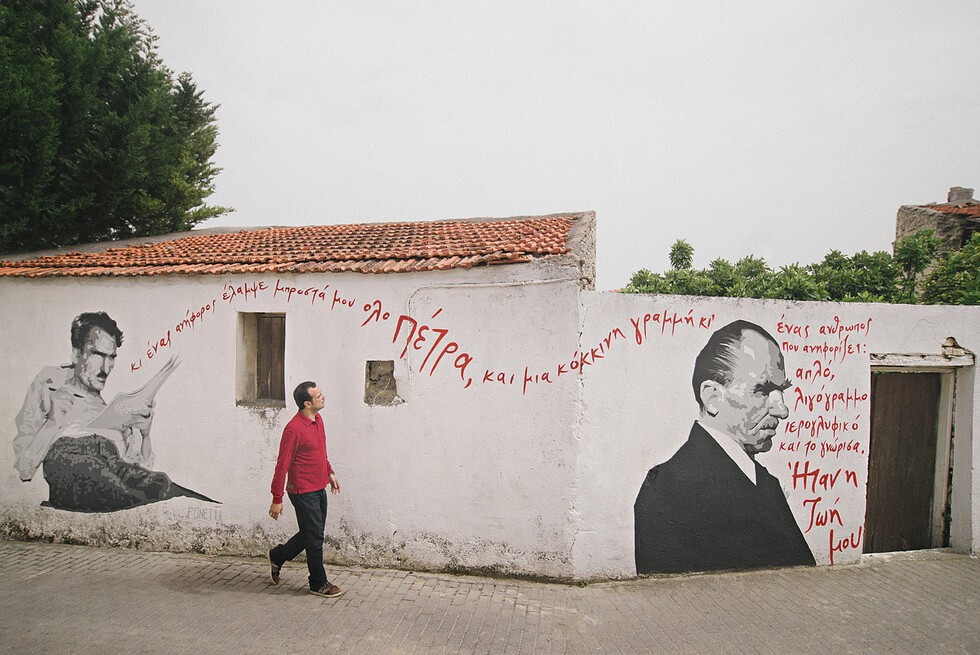
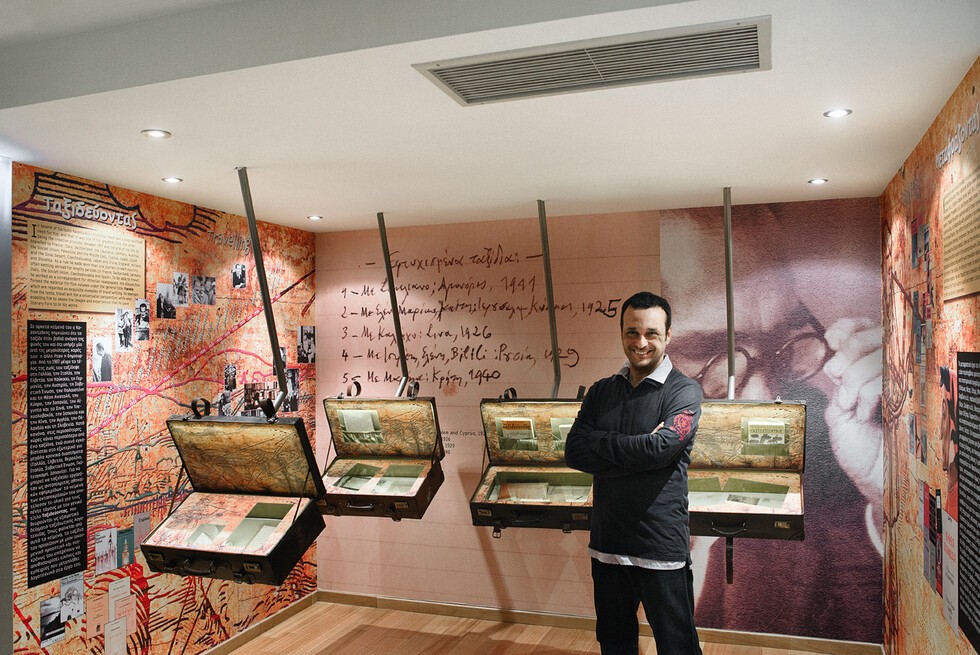
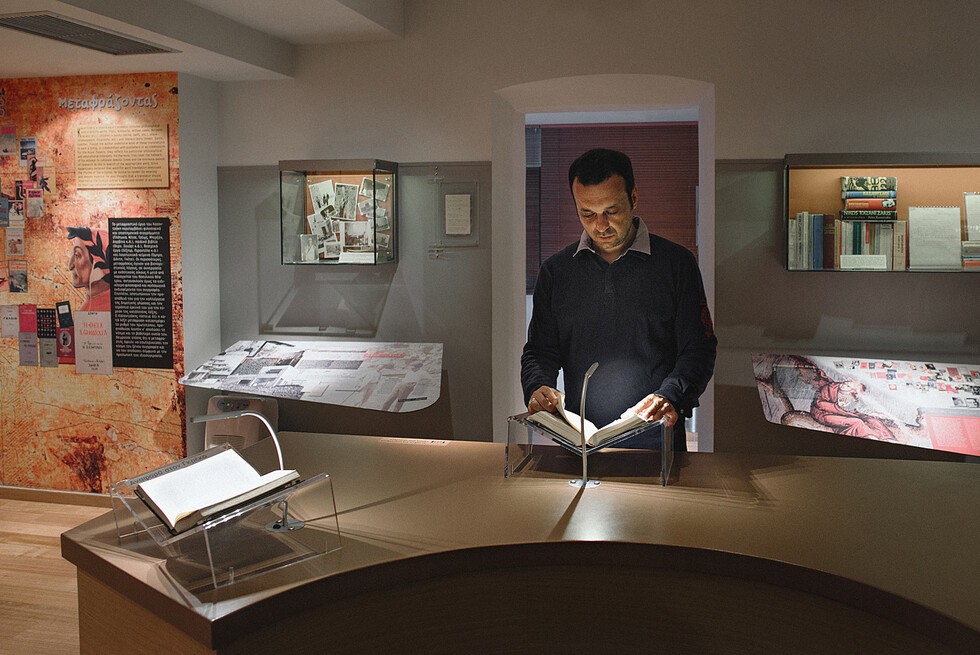
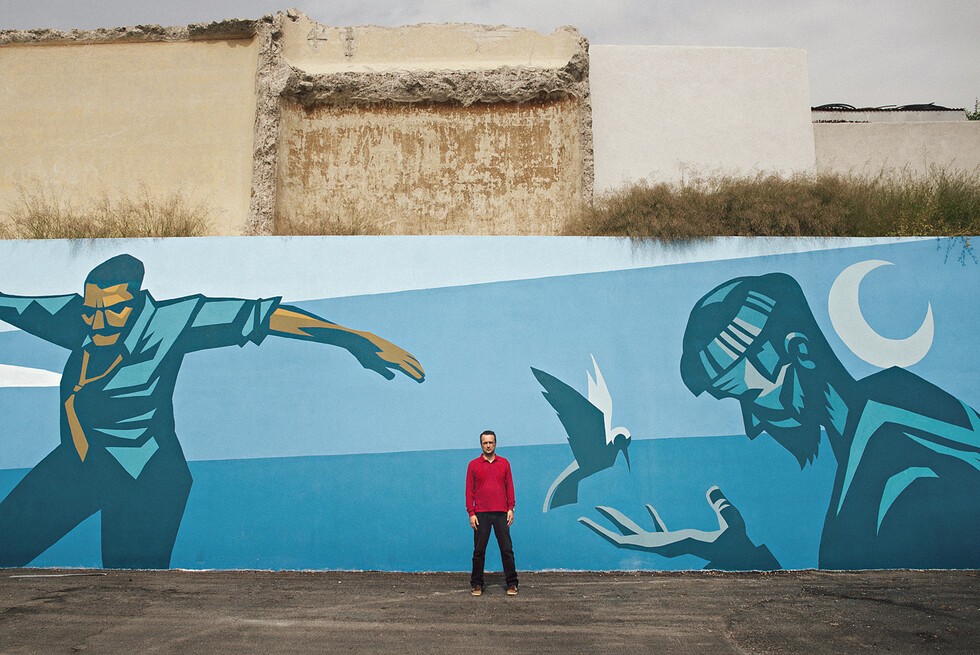
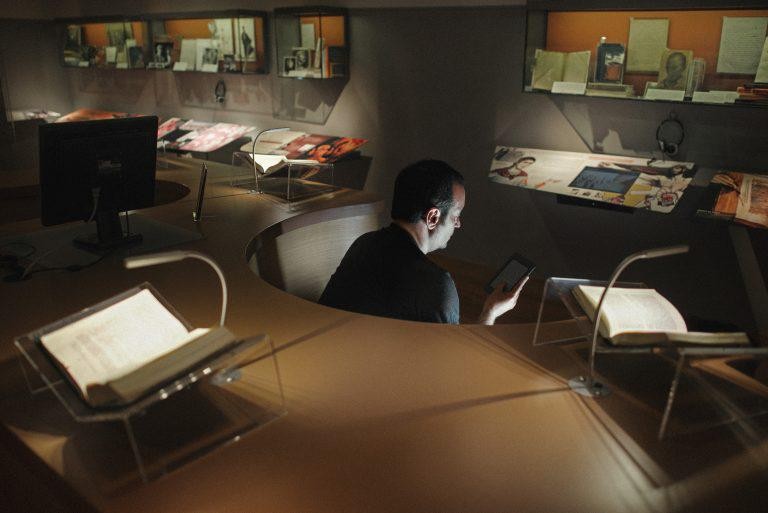 Image Credits
Image Credits
George Kamelakis at Nikos Kazantzakis Museum and Myrtia Heraklion Crete











